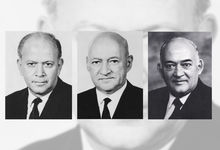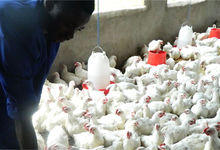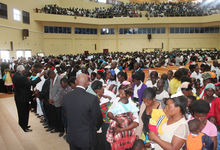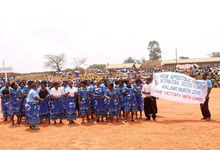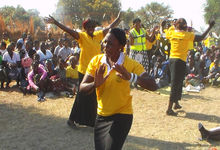A missionary with roots firmly planted at home
Fifty years ago to the day he was ordained as a District Apostle. At that time Zimbabwe was still called Rhodesia. He was also responsible for Zambia and Malawi: Andrew James Fernandes was born in Cape Town in South Africa and became an international traveler in Africa.
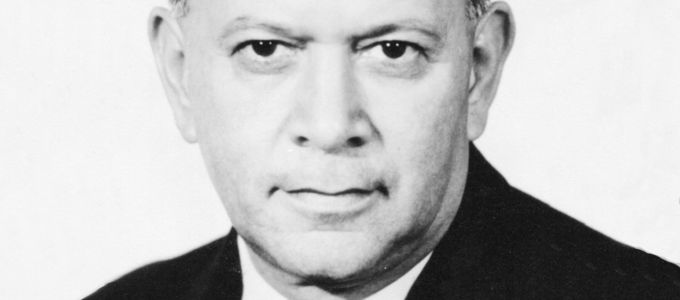
Andrew James Fernandes—the name still has considerable resonance today. The course of his life took was fascinating, his devotion extraordinary, and his love for the Lord exemplary. Already in his early teens, at the age of only 13, he lost his father: a bitter blow for the family. His father, Alfred Francis Fernandes, was a Priest in the New Apostolic Church and known for his zeal. Young Andrew took a liking to his father’s work and began to follow in his footsteps. Barely 20, he received his first ministry: Sub-Deacon.
Always young
Whichever ordinations followed, Andrew was always young. In 1957, when he was finally ordained into the Apostle ministry, he was 40 years old. At the time, this was relatively young for this ministry. When he was appointed as a District Apostle, he was 54 years old and had 18 years to leave his mark on the district.
From brother to brother
October 19, 1955 is considered the most important date in the history of the New Apostolic Church in Southern Africa. At the time, Chief Apostle Johann Gottfried Bischoff ordained Apostle Hubert Fernandes—Andrew’s elder brother—as District Apostle and restructured the Church in the countries of Southern Africa into three independent District Apostle Areas: the Cape and Namibia under District Apostle Arno Abicht, Pretoria led by District Apostle Jacobus Kreunen, and Rhodesia under District Apostle Hubert Fernandes.
The Fernandes brothers worked together at the head of a Church that covered a large region and demanded maximum effort on their part. They undertook long and difficult trips to visit and care for the congregations in the vast region. “The so-called roads that lead there are not passable by ordinary vehicles,” a travel companion reported. “What’s more, in some areas it is impossible to find accommodation.”
Things became really dangerous when a guerrilla uprising and a civil war raged in the region in the 1960s and 70s, destabilising the region. Northern and Southern Rhodesia drifted apart, which of course also had an influence on the operations of the Church.
As a result, a further restructuring of the District Apostle Areas took place, this time spearheaded by Chief Apostle Walter Schmidt: the then Apostle district of Rhodesia was divided into two national churches. District Apostle Hubert Fernandes—meanwhile in poor health—stayed in Zimbabwe, while Andrew Fernandes was appointed as District Apostle for Zambia and Malawi, where he worked together with Apostle Jeremiah Njamba and Bishop Gert Naudé.
Five years later, following the death of his brother, Andrew Fernandes also took over responsibility for the congregations in Zimbabwe.
Special credit goes to him for introducing regular Sunday School and Religious Instruction. Also choir work was important to him. The years he was District Apostle, the membership grew to about half a million.
A lifetime achievement
District Apostle Andrew James Fernandes died on 9 June 1989 at the age of 72. The funeral was held by Chief Apostle Richard Fehr in Harare in Zimbabwe. It was based on the Bible text 2 Timothy 4: 7 – 8, and also included the verse with which his father had been paid tribute to some 60 years earlier: “Finally, there is laid up for me the crown of righteousness, which the Lord, the righteous Judge, will give to me on that day, and not to me only but also to all who have loved His appearing.”
In the same divine service, Apostle Helper Duncan Mfune was appointed as District Apostle for Zambia and Bishop Anthony Fernandes—the son of Hubert Fernandes—as District Apostle for Zimbabwe and Malawi. Today the District Churches Zambia, Zimbabwe, and Malawi are once united in one large District Apostle Area, with more than a million New Apostolic members. Their District Apostle is Kububa Soko.
Photo: Zentralarchiv NAK Westdeutschland
Article info
Author:
Date:
Keywords:
Peter Johanning
02.02.2021
Zimbabwe,
District Apostle,
People/Personalities


